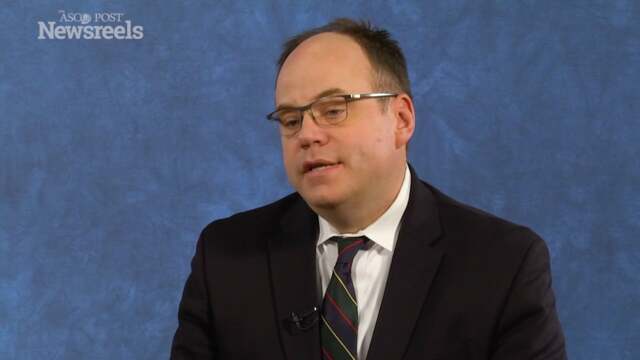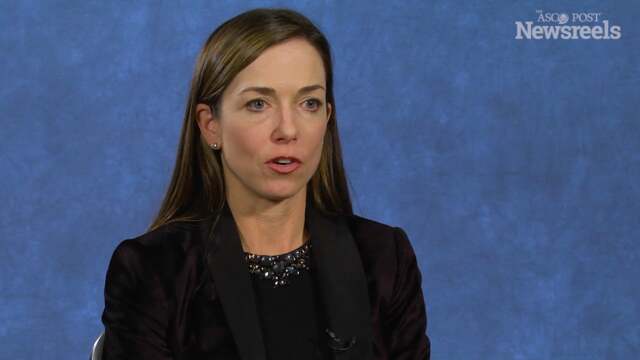Patricia A. Ganz, MD: Aromatase Inhibitors Data Review
2016 San Antonio Breast Cancer Symposium
Patricia A. Ganz, MD, of the UCLA Jonsson Comprehensive Cancer Center, summarizes two studies on using duloxetine for aromatase inhibitor–associated musculoskeletal symptoms, and aromatase inhibitors’ effect on endothelial function and heart disease (Abstracts S5-06 and S5-07).
Ruth O’Regan, MD, of the University of Wisconsin, and Ann H. Partridge, MD, of the Dana-Farber Cancer Institute, discuss study findings on the prognostic associations of TILs in metastatic HER2-positive breast cancer (Abstract S1-04).
Anne Hudson Blaes, MD, of the University of Minnesota, discusses the association between aromatase inhibitors, endothelial function, and early heart disease (Abstract S5-07).
Matthew P. Goetz, MD, of the Mayo Clinic, reviews progress made during the past year on treatment of advanced disease.
Sara A. Hurvitz, MD, of the UCLA Jonsson Comprehensive Cancer Center, discusses findings on the biological effects of abemaciclib in a neoadjuvant study for postmenopausal patients (Abstract S4-06).
Lisa A. Carey, MD, and Maki Tanioka, MD, both of the University of North Carolina, discuss study findings on weekly paclitaxel and trastuzumab with or without lapatinib for HER2-positive breast cancer (Abstract S3-05).





